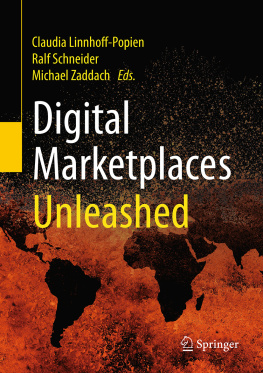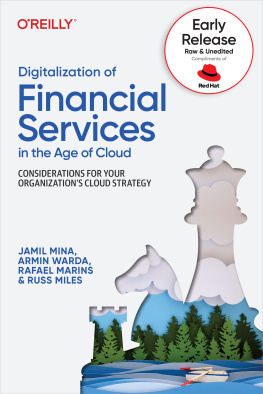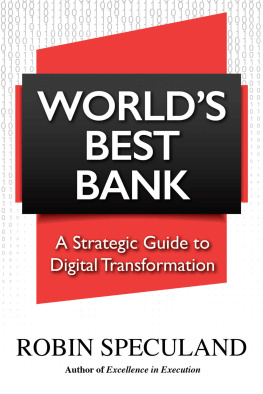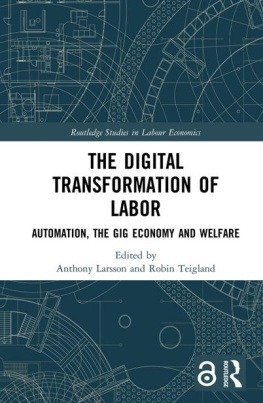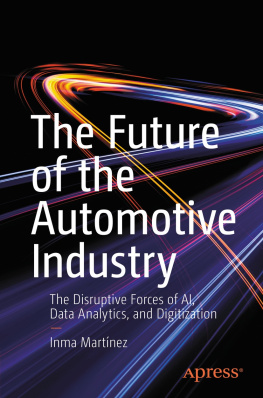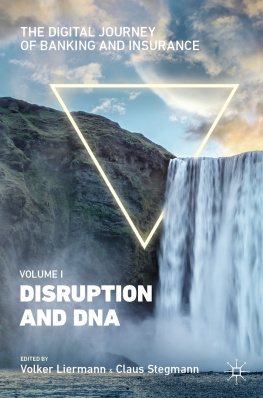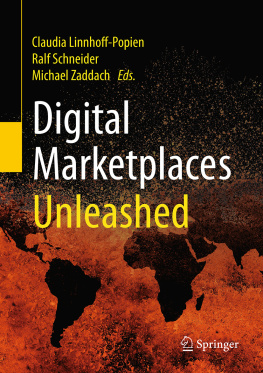1. Preface: Humans in Digital Marketplaces
Considering the history of mankind, not much time has passed, since Friedrich Schiller captured the dilemma of his time in a nutshell in his famous Wallenstein trilogy: The world is narrow, wide the mind of man. Today, in our digitalized and globalized world, Friedrich Schiller would describe the dilemma precisely in the opposite way: The world has become wide, but our brains are too narrow for the new world we live in.
The articles in this book underline the wide range of opportunities for innovative business enterprises offered bydigital technology in our global and connected world. There is no doubt that this rapid development will not only continue,but even accelerate during the next years. The most important perspectives and directions of this process are clearly pointedout in this book.
Technological innovations do not only alter our previous means of production or change economic developments, they alsooffer completely new instruments to academic research. The use of digital media allows previously inconceivable insights intothe structure and the organization of complex phenomena. This does not only concern classical natural sciences, such asastrophysics, but also and above all the socalled life sciences, the research of living systems from cellular and organicsystems to the ecological and social systems.
The new opportunities of data collection and analysis are particularly suitable for the research of complexrelationship patterns and their underlying laws. The so far prevailing analysis of isolated phenomena in laboratories willincreasingly be replaced by the research of their interactions in natural conditions. Necessarily this will help to gain newinsights. The last centurys predominant deterministic idea concerning the structure of living systems through geneticprograms is slowly being replaced by new findings on the increasingly visible and measurable skill of living systems forselforganization. A majority of findings and metaanalyses show that selforganizing relationshippatterns are responsiblefor further structure formation on all levels of development of living systems: during the development of embryos, thedevelopment of brains, the emergence of ecosystems or during the formation of social systems. In the21st century, as a side effect of the introduction of technological innovations,selforganization has become a key term for the understanding of development and transformation processes of livingbeings. Also social development and transformation processes, like the cohabitation of human beings, are the expression ofsuch selforganizing processes.
The so called Kontratieffcycles describe how economic developments are placed on new foundations again and againthrough so called basic innovations. These can entail decadeslong adaption processes in all areas of production, consumptionor trade that manifest in phases of economic upturn. Examples for technological innovations that trigger respective economicgrowth are the steam engine (1st cycle), steel production and the invention of the railway(2nd cycle), the innovations in the area of electrical technology and chemistry(3rd cycle), the introduction of cars and petrolchemistry (4th cycle)and finally, in the second half of the last century, the development of information technology(5th cycle).
However, these cycles have not only gone along with economic growth. They were always accompanied by noticeable changesto human life, especially to the cohabitation of humans. In particular these changes led to unavoidable, not intended(selforganized) adjustment processes affecting social relationships in the corresponding era.
Currently, with the globalization and the digitalization, we are experiencing a technological innovation which is notonly of economic importance but also influences all areas of human cohabitation. This time even to a previously unknownextent.
The manner how humans will live together, work together and learn from each other in the future will probably changeboth fundamentally and permanently. To stay with the picture of Friedrich Schiller, the brain therefore has to significantlydevelop further.
The key to this development are offered by the most recent findings in the area of brain science: the human brain ismore vivid than assumed. The brain is able to modify, add and expand neural networks even into the old age. For this reasonshumans are capable to learn throughout their whole life. And: the human brains structure is determined more than previouslyassumed by social experiences, the exchange of knowledge and skills and through collaborative design performances. It istherefore an organ that is formed by and optimized through social relationships. Whoever wants to further develop andenlarge his brain, or the brain of others, should to invest in social relationships, in mutual exchange and in the searchof joint solutions.
In case it is true that every living system reorganizes the relationships of its members until the perpetuation of theregarded system is ensured with a minimal input of energy, it is possible to predict how the future coexistence of humanbeings, considering digitalization and globalization, will develop at the beginning of the 21st century. The former frictionlosses that were part of the traditional relationships, in other words, the enormous expenses of energy and resources thatare used to maintain our current way of cohabitation, has to shrink. New digital communication technologies and learningprograms can be considered helpful instruments in this regards. However, the key to the transformation of our present (energyintensive) relationship culture might be found elsewhere and is more of a fundamental nature: As long as humans treat eachother like objects to achieve their own goals and objectives, those communities create too much friction loss and therebyhinder themselves to evolve their existing potentials.
As a result we infringe against a generally valid principle concerning the development of the universe that has beenidentified by atomic physicists. That this is about the progressive opening and development of opportunities. Gregory Batesonalready reminded us that there is no opportunity to change the nature, except one comply with it. But in order to comply withhuman nature, we need to know how it works.
With their research neurobiologists made a huge contribution to answer this question. In a nutshell their discoverypoints out: humans do not exist as individual entity, just as much as the brain does not exist without the body. In order tomature as humans beings and to become the designers of our own lives, we need other humans, we need communities where theirmembers consider each other as subjects instead of objects of their own expectations and valuations, objectives andintentions, measures and orders. This makes it clear, where digitalization might finally lead us to. What remains uncertain,is the question when the actors and designers of this digitalized World recognize that this world persist over time, if itoffers a familiar and comfortable feeling to people. This can only be offered through the satisfaction of the deepest humanneed for solidarity and security on one side and autonomy and freedom on the other side. Digital marketplaces unleashedcould help to transform the world into a global village. And Schiller would be right again. However, it would be better ifthe unleashed digitalization increases the diversity and richness of the world and its cultures into the unknown. In thiscase Schiller would need state: As long the world is widening, the brain can never be narrowing.

